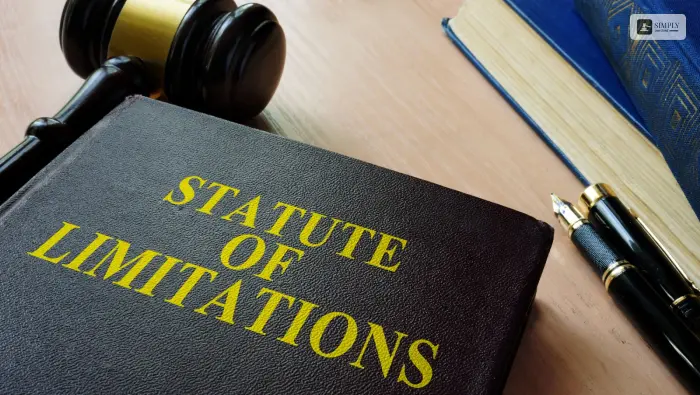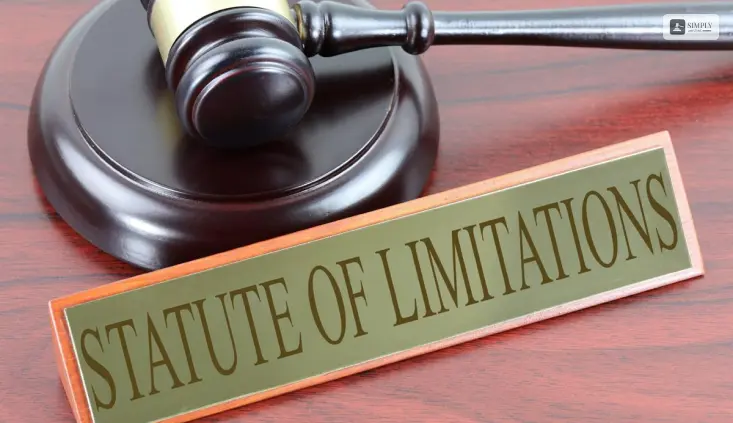
Statute of Limitations is a legal term that means the time limit within which a person can bring a lawsuit or legal claim against someone else for a specific incident or wrongdoing.
So, What Is The Statute Of Limitations?
Alright, let’s get started! The Statute of Limitations, often abbreviated as SOL, is a legal rule that specifies the maximum time you have to initiate a lawsuit or legal action after an event has occurred. Think of it as a legal “use by” date. Moreover, After that date passes, your claim might expire.
Why Does It Exist?
The Statute of Limitations serves several crucial purposes:
1. Protecting Legal Rights
One of the main reasons is to ensure that people don’t have to worry about old, unresolved issues hanging over their heads indefinitely. Moreover, It promotes finality and closure.
2. Preserving Evidence
Over time, evidence can disappear, memories can fade, and witnesses can become harder to find.
Moreover, The Statute of Limitations encourages people to pursue their claims promptly, while evidence is still fresh and available.
3. Promoting Efficiency
It also keeps the legal system running efficiently. Imagine if someone could bring a lawsuit 50 years after an event occurred.
Moreover, The court system would be clogged with old disputes, making it challenging to address new legal issues effectively.
Different Types of Statutes

Not all cases have the same statute of limitations. Different types of legal actions come with different time limits, depending on the nature of the claim and the jurisdiction (the specific laws of the state or country you’re in).
Here are some common categories:
1. Personal Injury
In cases where someone is injured due to another’s negligence,it typically ranges from one to three years, but it can vary widely.
2. Contracts
For breach of contract claims, the statute of limitations is generally around three to six years. Moreover, This gives parties adequate time to discover and enforce their rights under a contract.
3. Property
When it comes to property-related claims, such as property damage or disputes over real estate. Moreover, statutes of limitations are often several years, typically ranging from three to ten years.
4. Criminal Offenses
For criminal offenses, it can get a bit more complicated. Moreover, The statute of limitations depends on the nature of the crime, with more severe crimes usually having longer or no time limits.
Exceptions and Extensions
Now, we’re going to throw a curveball: there are exceptions and extensions to statutes of limitations. Moreover, These exceptions can vary depending on the jurisdiction and the type of claim, but they’re essential to know:
1. Minors
In many cases, minors are granted extra time to bring a lawsuit. Moreover, given that they may not be aware of their rights or injuries until they reach the age of majority.
2. Fraud or Concealment
If the defendant engaged in fraudulent or deceptive behavior to hide the facts surrounding your claim, the statute of limitations might be extended until you reasonably should have discovered the fraud.
3. Disabilities
If a person is incapacitated due to a disability or mental health condition, they may be allowed extra time to bring a lawsuit after their disability ends.
4. Government Claims
Government entities often have shorter statutes of limitations for certain types of claims, and the rules can be quite complex.
“Laches” and the End of the Line
If you miss the statute of limitations and there’s no exception to save you, your claim is, in legal terms, “time-barred.” There’s a Latin phrase that comes into play here – “laches,” which means an unreasonable delay in pursuing a claim that results in prejudice to the defendant.
Statute Of Limitations For Criminal Cases
Criminal Statutes of Limitations can be discussed under the following points.
Most States set time limits called statutes of limitations for filing formal criminal charges after an arrest. Moreover, These laws are meant to preserve evidence and ensure an efficient justice system.
Misdemeanors
Most misdemeanors have a one-year time limit for prosecution.
Moreover, These include minor assault, battery, and certain theft charges.
Felonies
Some states like Virginia, are unique as they do not have a statute of limitations for most felonies.
Moreover, Crimes like aggravated assault, battery, rape, murder, burglary, kidnapping, manslaughter, and robbery have no time limit for prosecution.
Fugitive Situation
The statute of limitations ‘clock’ doesn’t always start immediately after a crime. Moreover, It begins when the person comes back to the jurisdiction of the state.
Statute Of Limitations Can Differ
The length of the statute of limitations varies depending on the type of crime.
– Felonies like murder and rape have no time limit.
– Unlawful creation of an image of another or cruelty to animals have a limitation period of 5 years.
– Workplace Misdemeanors and building code violations have a limitation period of 2 years.
– Petit larceny has a limitation of 5 years.
– State-specific laws like Violation of the Virginia Computer Crimes Act or identity theft have a limitation period of 5 years after the last act of violation. Moreover, It becomes 1 year after the discovery of the illegal act and the offender’s identity.
– Some crimes involving child victims have no statute of limitations.
– Statutory rape of a child between 13 and 15 has no time limit.
– Usually, the statute of limitations is paused when a person runs away or hides from the law. Moreover, They do this to avoid arrest or deserting their family.
So, the bottom line is that you should contact a criminal defense attorney to best know when to file a charge against your wrongdoer.
Statute Of Limitations For Civil Cases
The clock for the statute of limitations for civil cases usually begins at the time the incident happened. These limitations are standard, with different time limits for various types of claims.
Let us take a simple look into some of its examples.
– There is a 2-year limit on claims related to injuries, fraud, libel, and slander have a two-year time limit in states
– There is a 5-year limit on claims for trespassing, injury to personal property. Moreover, written contracts have a five-year time limit.
What Is The Discovery Rule Of The Statute of Limitations?

If someone discovers an injury or harm after the statute of limitations has passed, they fall under the category of “discovery rule.”
– Civil statutes of limitations may be “paused” when a plaintiff is unable to file a lawsuit. Moreover, This protects their limitation period until they are no longer a minor or if they do not have the mental capacity to.
– Parties can agree to shorten the statute of limitations through a contract. Moreover, This can include online user agreements, arbitration waivers, etc.
Some More Examples Of The Statute Of Limitations
These are some examples of statutes of limitation.
-Injury to Person, libel or slander, or fraud, the limitation period is 2 years.
-Injury to Personal Property, Trespass, the limitation period is 5 years.
-Professional Malpractice (this includes Medical Malpractice cases). Moreover, the usual limitation period is one to two years, but a maximum of 10 years is allowed.
-Contracts that are oral, the limitation period is 3 years.
– The Collection of Rents, the limitation period is 4 years (parties may not limit it to less than one year per contract).
The time limits for filing lawsuits can be confusing.
Moreover, Try consultations with an attorney to get a better idea of the statute of limitation Virginia or in other states.
Frequently Asked Questions (FAQs)
Alright, folks, we’ve explored the statute of limitations from top to bottom, inside out. But let’s not call it quits just yet. Here’s a quick rundown of some common questions people often have about this legal concept.
The statute of limitations serves several purposes, including ensuring timely resolution of cases, preserving evidence, and preventing people from living with the threat of legal action indefinitely.
For instance, if the plaintiff is a minor or the defendant is out of the jurisdiction, the clock might stop temporarily.
However, there are exceptions, such as cases involving fraud or ongoing harm.
Yes, it does. Criminal cases have their own statutes of limitations, which vary depending on the type of crime and jurisdiction.
In some jurisdictions, the “discovery rule” may apply. Moreover, This means the clock starts ticking when you reasonably should have discovered the injury or harm, rather than when it occurred.
Yes, in some cases, parties can agree to waive or extend the statute of limitations through contractual agreements or settlements.
Final Words
Now, as we wrap up, let’s not forget the significance of the statute of limitations.It also provides individuals with a sense of closure, knowing that they won’t face potential legal action indefinitely.
But, it’s essential to remember that each case is unique, and the statute of limitations can vary depending on the nature of the offense and the jurisdiction.
Moreover, Consulting with legal experts and professionals is always a smart move when dealing with any legal matter.
So, whether you’re a plaintiff seeking justice or a defendant hoping to put a matter behind you, understanding the statute of limitations is like having a compass in the legal landscape.
Cheers to timely justice and a legal system that keeps things moving!
Hope you enjoyed reading the article!
Read More:


